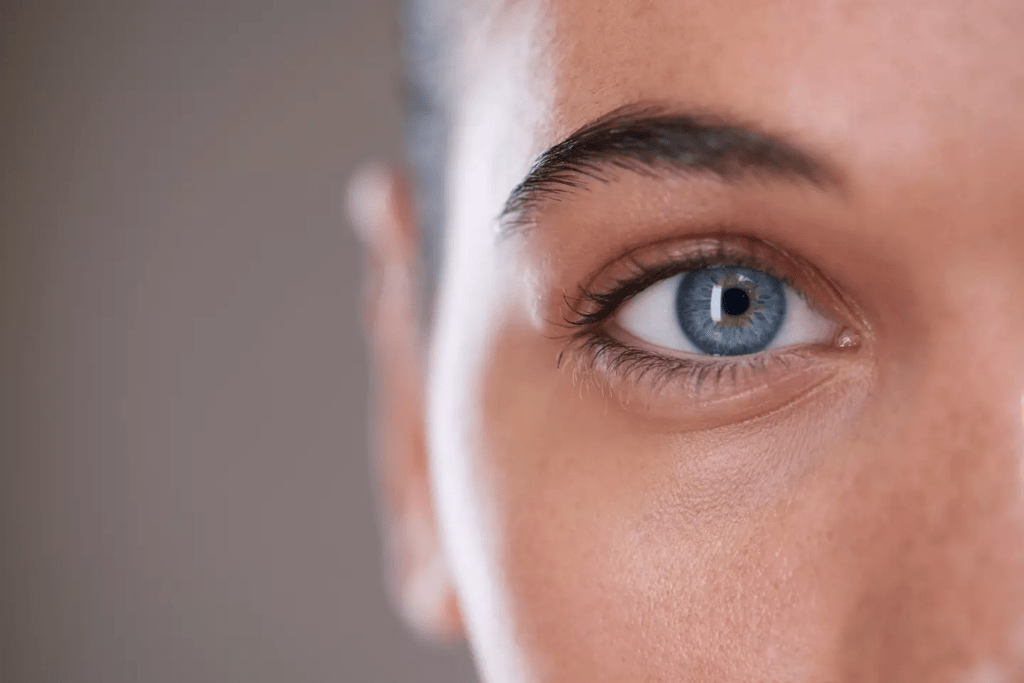What to Do If You See ‘Floaters’ in Your Eyes: An Expert’s Guide to Eye Health

The Mystery of Eye Floaters
Have you ever noticed peculiar smudges or wiggly lines that seem to float across your field of vision, disappearing when you try to focus on them? These odd visual disturbances are commonly known as ‘floaters.’ For many, they’re just a passing distraction, but for others, they can be persistent and bothersome. More importantly, floaters can sometimes be an early warning sign of more serious eye conditions. Understanding what floaters are, why they appear, and when to seek medical advice is crucial for maintaining optimal eye health. In this article, we’ll explore the science behind floaters, expert insights, and practical steps to take if you notice changes in your vision.

What Are Eye Floaters?
Dr. Daniel Polya, a renowned ophthalmologist from the Royal Australian and New Zealand College of Ophthalmologists, delves into the nature of floaters. According to Dr. Polya, floaters are tiny clumps of vitreous fibers, which make up the gel-like substance inside the eye. These fibers can clump together as we age, creating shadows on the retina that are perceived as floaters.
“The condensation of collagen fibers causes floaters,” explains Dr. Polya. “When large molecules of collagen aggregate, they form shadows that cast on the retina, leading to the visual sensation of floaters.” This process is often linked to the natural aging of the vitreous, which starts to liquefy and pull away from the retina in a process called posterior vitreous detachment (PVD).
Floaters are usually more noticeable when looking at a bright background, such as a clear sky or a white wall. While floaters themselves are generally harmless, a sudden increase in their number or the presence of flashes of light can indicate more serious issues like a retinal tear or detachment. Discover more about eye floaters and their causes.
Understanding the Causes of Floaters
The development of floaters can be linked to several factors, most commonly aging. As we age, the vitreous humor — the clear gel that fills the eye — begins to change in consistency. This natural aging process leads to the clumping of collagen fibers within the vitreous, casting shadows on the retina that appear as floaters. However, other causes can also lead to the presence of floaters.
Dr. Polya highlights posterior vitreous detachment (PVD) as a common cause. PVD occurs when the vitreous gel separates from the retina. While PVD is often harmless, it can occasionally lead to retinal tears or detachment, especially if the vitreous is still partially attached and exerts a pulling force on the retina. “For those that develop PVD, there’s a 5% chance it could result in a tear in the retina,” Dr. Polya warns. “If a tear occurs, there’s a 50% chance it could lead to retinal detachment.”
Retinal detachment is a serious condition that requires immediate medical attention. It occurs when the retina pulls away from its normal position, potentially leading to permanent vision loss if not promptly treated. Symptoms include a sudden increase in floaters, flashes of light, and a shadow or curtain over part of your vision. Read more about the symptoms and treatment of retinal detachment.
The Importance of Early Detection
Detecting and treating issues related to floaters early can prevent serious complications. Dr. Polya emphasizes the critical nature of early examination. “It’s really disappointing when a patient comes in with retinal detachment that could have been diagnosed earlier if they had sought help when they first noticed floaters,” he says. Early detection can allow for interventions that preserve vision, such as laser treatment for retinal tears.
Regular eye examinations are essential, especially for individuals over the age of 50 or those with risk factors for retinal issues. Dr. Polya advises, “Even if floaters seem minor, new occurrences should be evaluated by an eye care professional. This ensures that any underlying conditions are identified and managed appropriately.”
In some cases, floaters can become large and problematic, significantly impacting vision. For such instances, laser vitreolysis or vitrectomy surgery may be considered. These procedures, while carrying certain risks, can improve the quality of life for those severely affected by floaters. Learn about the procedures for managing floaters.

It’s important to keep check of your eye health (Getty Stock Image)
When to Consult an Optician
Many people learn to live with floaters, especially if they are infrequent or don’t interfere with daily life. However, Dr. Polya urges vigilance when it comes to changes in vision. “It’s so important to see an optician when a floater first appears, especially if accompanied by other symptoms like flashes of light or a loss of peripheral vision,” he states. These could be signs of a retinal tear or detachment, conditions that require urgent care.
An optician can conduct a thorough eye examination to determine the cause of floaters and recommend appropriate treatment or monitoring. If caught early, conditions like retinal tears can be treated with laser surgery to prevent progression to retinal detachment. For those experiencing severe floaters that impair vision, advanced treatments like laser therapy to break up the floaters or vitrectomy to remove the vitreous gel can be explored.
Regular check-ups are also vital for those with pre-existing eye conditions, diabetes, or a family history of retinal issues. Maintaining eye health involves more than just monitoring floaters; it includes routine exams to detect and manage any eye changes. Schedule an eye exam today.
Preventative Eye Care and Regular Check-Ups
Maintaining good eye health involves more than responding to symptoms when they arise. Preventative care is crucial. Regular eye exams allow for the early detection of changes that might not yet present symptoms. These exams can identify risk factors for conditions like PVD or retinal detachment before they become severe.
A healthy lifestyle also plays a role in maintaining eye health. Eating a diet rich in fruits, vegetables, and omega-3 fatty acids can help preserve vision. Regular exercise and protecting your eyes from UV light with sunglasses can further reduce the risk of developing eye conditions.
Dr. Polya emphasizes, “Preventative care and regular monitoring are the cornerstones of maintaining vision health. Taking small steps today can prevent significant vision loss in the future.” By adopting these habits, individuals can help ensure their eyes remain healthy for years to come. Explore more tips for healthy vision.
Social Media Reactions and Personal Experiences
Social media platforms like Reddit and Twitter have become hubs for people to share their experiences with floaters and seek advice. Hashtags such as #EyeFloaters, #EyeHealth, and #VisionCare have fostered discussions around the topic, raising awareness and prompting many to seek professional consultations.
Personal stories shared on these platforms often highlight the importance of not dismissing changes in vision. For instance, users have recounted how noticing new floaters led them to discover serious conditions like retinal tears, which they might have ignored without the prompt from online communities.
This digital engagement underscores the importance of public awareness and peer support in managing health concerns. Sharing experiences helps demystify medical conditions, encouraging others to take proactive steps in their health care. If you’ve noticed changes in your vision, consider joining the conversation online to learn from others and share your story.
Conclusion: Taking Eye Health Seriously
Floaters, while common and often benign, can be a sign of significant changes in your eye health. Understanding what floaters are, their causes, and when to seek medical advice is crucial for preventing potential complications such as retinal detachment. If you start seeing new floaters or notice any changes in your vision, don’t ignore them. Consult an eye care professional to ensure your eyes remain healthy. Regular eye exams and early detection are key to maintaining good vision and preventing serious eye conditions.
Book an eye exam with a qualified optician today.
Have you experienced eye floaters? Share your story in the comments below, and let us know how you manage your eye health!
Featured Image Credit: Getty Stock Images






